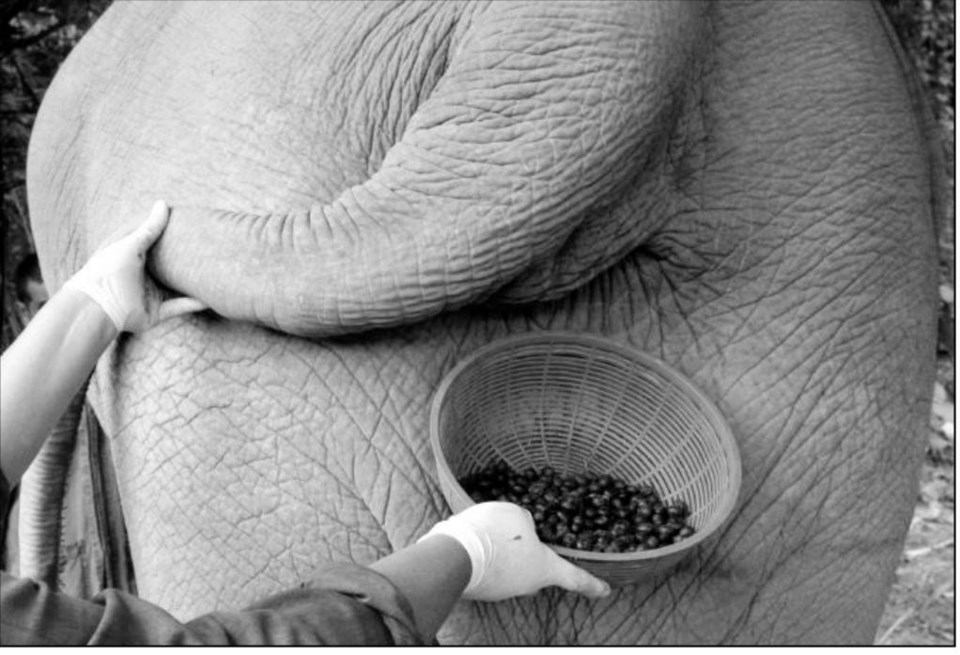- In the lush hills of northern Thailand, a herd of 20 elephants is excreting some of the world's most expensive coffee.
Trumpeted as earthy in flavour and smooth on the palate, the exotic new brew is made from beans eaten by Thai elephants and plucked a day later from their dung.
A gut reaction inside the elephant creates the coffee's unique taste.
This is not just one of the world's most unusual specialty coffees. At $1,100 per kilogram, it's also among the world's priciest. For now, only the wealthy or well-travelled have access to the cuppa, called Black Ivory Coffee. It was launched last month at a few luxury hotels in remote corners of the world - first in northern Thailand, then the Maldives and now Abu Dhabi - with the price tag of about $50 a serving.
Why elephants? In the misty mountains where Thailand meets Laos and Myanmar, the coffee's Canadian creator cites biology and scientific research.
"When an elephant eats coffee, its stomach acid breaks down the protein found in coffee, which is a key factor in bitterness," said Blake Dinkin, who has spent $300,000 developing the coffee. "You end up with a cup that's very smooth without the bitterness of regular coffee."
The result is similar in civet coffee, or kopi luwak, another exorbitantly expensive variety extracted from the excrement of the weasel-like civet. But the elephants massive stomach provides a bonus.
Think of the elephant as the animal kingdom's equiv alent of a slow cooker. It takes between 15 and 30 hours to digest the beans, which stew together with bananas, sugar cane and other ingredients in the elephant's vegetarian diet to infuse unique earthy and fruity flavours, said the 42-year-old, who has a background in civet coffee. "My theory is that a natural fermentation process takes place in the elephant's gut," said Dinkin. "That fermentation imparts flavours you wouldn't get from other coffees."
At the jungle retreat that is home to the herd, conservationists were initially skeptical about the idea.
"My initial thought was about caffeine - won't the elephants get wired on it or addicted to coffee?" said John Roberts, director of elephants at the Golden Triangle Asian Elephant Foundation, a refuge for rescued elephants.
It now earns eight per cent of the coffee's total sales, which go toward the herd's health care.
Before presenting his proposal to the foundation, Dinkin said he worked with a Canadian-based veterinarian that ran blood tests on zoo elephants showing they don't absorb any caffeine from eating raw coffee cherries. "I thought it was well worth a try because we're looking for anything that can help elephants to make a living," said Roberts, who estimates the cost of keeping each elephant is about $1,000 a month.
As for the coffee's inflated price, Dinkin said it takes 33 kilograms of raw coffee cherries to produce one kilogram of Black Ivory coffee. The majority of beans get chewed up, broken or lost in tall grass after being excreted.
Black Ivory's maiden batch of 70 kilograms has sold out. Dinkin hopes to crank out six times that amount in 2013.



